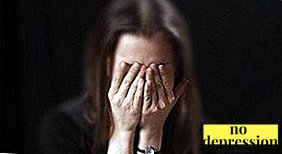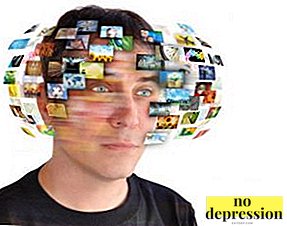It may seem to someone that smart people do not ask the question "how to read books?" - And this is the mistake of such a person. After all, a book is a source of knowledge only if it is properly used. You can read hundreds of books, but be dumber than someone who has read a few. But does this mean that they are useless? Or is it worth spending time reading them? How to do it correctly in order to get the maximum benefit with the least loss of time? Let's practice reading this article.
Why do I need to read books?
Books have always been associated with the acquisition of knowledge. Parents and teachers unanimously declare that it is necessary to read as much literature as possible in order to become intelligent and successful. But is it really? Do I need to read books to succeed in life? The answer to this question is not straightforward. The fact is that knowledge alone is not enough to achieve success.
Texts give only theory. Without practice, there is little benefit from it. Anyone who believes that a good result depends on the number of texts read is mistaken. After receiving any information, it is very important to process it and put it into practice. Only in this case, knowledge will bring real benefits. But you can not do without theory. Indeed, during the existence of mankind, so much experience has accumulated that it makes no sense to “reinvent bicycles” if there is an opportunity to read about it.
With the development of information technology, the role of books as sources of knowledge has been noticeably shaken, because now you can get information by visiting the site, watching a video, or listening to an audio file. But to argue that books go into the past is wrong, because there is a certain culture of paper reading, which is firmly rooted in the hearts of people. Hardly anyone will be able to fall asleep with a monitor on his face, but with a book please. On the other hand, any source of information can be conditionally considered as a “book,” because the principle of learning is the same. So, it is more correct to ask the question not “why read books?”, But “how exactly to do it?”
What are the types of reading?
Depending on the speed of familiarization and the depth of penetration into the material, there are five types of reading:
- In depth - Thoughtful reading with the analysis and evaluation of the material;
- Fast - obtaining information for a short time;
- Selective - selective acquaintance with individual fragments;
- View - superficial familiarization;
- Scanning - fluent scrolling.
The first kind is the most solid. Such reading brings maximum knowledge. Information is passed through the prism of human experience, thereby being actualized and penetrating deeper into the memory.
Quick reading or speed reading is slightly inferior in depth in quality of perception, but allows you to capture more information in the same time frame. This skill is useful for people who need to track large amounts of information.
Selective reading also justified if it is necessary to study some of its fragment. For example, read one of the sections of the textbook before the exam. It makes no sense to re-read the entire book, filling the head with unnecessary information.
If a person does not fully understand the essence of the text, it is difficult for him to figure out whether to read it. For these purposes, just a quick look. Of course, this kind of reading will bring information to a minimum, but it will save time and effort.
Scanning, despite the original name, it implies merely a search for the necessary information. For example, the names of the historical figure, the date of a certain event, or deciphering some scientific term.
It is unambiguous to say which type of reading is the most useful is impossible, since in a particular situation each of them can be applied. But, most often, when asked how to read books, they imply in-depth and thoughtful reading. Therefore, let's talk about him.
How to read books?
To get the maximum benefit, you should apply the following simple reading rules:
- Choose an interesting book;
- Practice active perception;
- Moderately consume information;
- Concentrate on reading;
- To apply this knowledge in practice.
These rules are interrelated, it is desirable to apply them all.
Choose an interesting book
The ease of reading depends on how interesting and useful the text is. When choosing, you should consider a variety of factors. Aesthetic appeal, font size, simplicity and accessibility of presentation, the number of explanatory illustrations, the competence of the author, recommendations from other readers, etc. If you do not make a mistake, then reading the book will bring real pleasure.
Practice active perception
This rule means active in obtaining information. You do not need to be a passive participant in the events described on the pages. Should pass information through itself. It is advisable to take notes. In order not to spoil the book, you can get a notebook in which to write down key thoughts, as well as your interpretation of the read.
Moderately consume information
As in the case of sports, excessive reading can end sadly. It is obvious that physical overstrain drains muscles. This is known to many. But the fact that the abundance of information in a similar way affects the brain, do not understand everything. This is in vain, because the process of obtaining knowledge is not very different from physical development. So, wanting to "pump the brains", it is worth thinking about their rest.
Concentrate on reading
The more important the information that must be obtained in the process of reading, the more attention should be paid to it. Distractions, including television, a neighbor's party, or phone conversations, are not the best allies on the path to self-education. It is advisable to choose at least one hour a day in order to fully immerse yourself in reading.
To apply this knowledge in practice
The theory without practice is dead. In fairness of this phrase can not be doubted. So, if there is a thirst for knowledge, then it is better to supplement it with a desire to realize this knowledge. Then the memory will "settle down" better, and there will be more sense from reading.
Books are the true friends of a person, his assistants on the path to gaining knowledge. But to the full benefit only those who understood how to read books. The methods are different and each of them is applicable in a particular situation. The most fruitful is in-depth reading, which allows you to better assimilate information, remember it longer and use it correctly.



